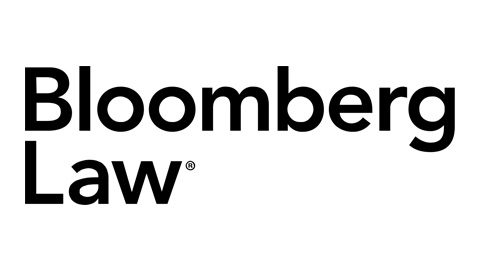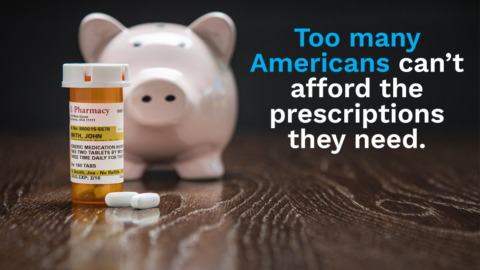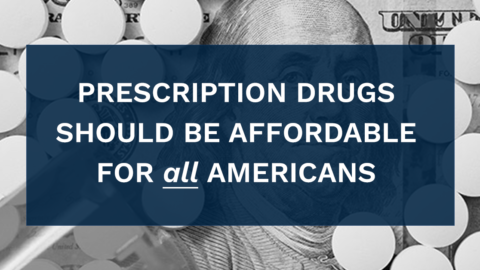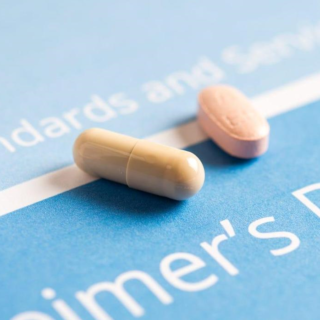Reducing Pharmacy Costs
Businesses and employees are spending far too much on prescription drugs; high drug costs remain one of Americans’ greatest concerns. To reduce your health care costs and improve access to higher quality care, PBGH helps purchasers disrupt the complicated and opaque pharmaceutical supply chain and hold vendors accountable. The result is transformative benefit design and access to better and more transparent drug pricing for employers and their employees.
Pharmacy Initiatives
Waste-Free Formularies
Read More about Waste-Free FormulariesPBGH has helped large employers save millions of dollars on pharmaceutical spending with its proprietary Waste-Free Formulary Guidebook and Calculator.
Biosimilars
Read More about BiosimilarsTo reduce cost and increase access to life-saving treatments for patients, PBGH works with employers and purchasers to assess and break through barriers to adopting biosimilars.
Employers’ Prescription for Affordable Drugs
Read More about Employers’ Prescription for Affordable DrugsSoaring drug expenses are a key factor in the overall rise of health care costs. This alliance is tackling the cost of prescription drugs by working with policymakers and stakeholders to inject greater competition, transparency and value into the health care system.
Featured

More Employers Turning to Benefit Startups to Manage Drug Costs

Changing the Game: Groundbreaking Drug Benefit Purchasing Standards for Large Employers
PBGH’s PBM Purchasing Standards build on a long history of combatting rising drug costs and helps employers and other health care purchasers combat abusive PBM contracting practices.

PBM Reform Act a Critical First Step in Ending PBM Abuses, Key Fiduciary Requirement Missing
The bipartisan Pharmacy Benefit Manager (PBM) Reform Act advanced out of a key congressional committee this week, paving the way for eventual floor debate of the landmark legislation.

The Hidden Cost of PBMs in the Health Care Industry
Federal action is essential to curb PBMs’ anti-competitive practices and to require accountability for the industry.

Historic Drug Legislation Passed: What It Means for Employers and American Workers
In the wake of the recent drug pricing reforms passed, learn six steps employers and purchasers can take to address the exceedingly high-cost burden of prescription drugs.

PBGH Statement on the Parliamentarian’s Decision to Limit Drug Provisions in the Reconciliation Bill to Medicare Only
Review of the drug pricing provisions of the reconciliation package by the parliamentarian today resulted in good news for America’s seniors in that it allows Medicare to negotiate prescription drug prices and potentially lower costs for millions of Americans.

What the Biden Administration’s Drug Pricing Reforms Mean for Employers
Policy specialists taking part in a recent PBGH roundtable on drug costs noted the reforms continue to enjoy broad, bi-partisan support and will help address a top concern of the American people in an election year.

PBGH Joins More Than 90 Organizations to Call on the Senate to Pass Drug Pricing Reforms
PBGH joined more than 90 organizations representing patients, consumers, seniors, unions, small businesses, large employers, physicians and disease advocacy groups to urge the Senate to immediately advance a reconciliation package that includes the reforms to lower prescription drug prices agreed to in the Build Back Better Act.

Patients and Employers Agree: Congress Must Allow Medicare to Negotiate Lower Drug Prices for Americans
Patients and employers urge the House Ways and Means and Energy and Commerce Committees to move forward with H.R. 3, a bill that will empower Medicare to negotiate lower drug prices on behalf of Americans.

EmployersRx: Congress Must Reduce Drug Costs for Everyone
Congressional leaders are currently drafting legislation that would allow the federal government to negotiate the price of high-cost drugs and those newly entering the market.
Resources

Employers and Other Stakeholders Urge Senate to Move on PBM Reform

PBM Purchasing Standards for Plan Sponsors

Pharmacy Benefit Tactics Drive Up Drug Prices, Limit Access, Contribute to Health Risks

Employer Groups Send Letter on Drug Pricing to Senate Committee of Finance Chairman

Letter to Congressional Leadership re: Prescription Drug Pricing

PBGH Letter to Congressional Leadership re: Aducanumab pricing
Announcements
PBGH Statement on the Parliamentarian’s Decision to Limit Drug Provisions in the Reconciliation Bill to Medicare Only
Review of the drug pricing provisions of the reconciliation package by the parliamentarian today resulted in good news for America’s seniors in that it allows Medicare to negotiate prescription drug prices and potentially lower costs for millions of Americans.
PBGH Joins More Than 90 Organizations to Call on the Senate to Pass Drug Pricing Reforms
PBGH joined more than 90 organizations representing patients, consumers, seniors, unions, small businesses, large employers, physicians and disease advocacy groups to urge the Senate to immediately advance a reconciliation package that includes the reforms to lower prescription drug prices agreed to in the Build Back Better Act.
Patients and Employers Agree: Congress Must Allow Medicare to Negotiate Lower Drug Prices for Americans
Patients and employers urge the House Ways and Means and Energy and Commerce Committees to move forward with H.R. 3, a bill that will empower Medicare to negotiate lower drug prices on behalf of Americans.
EmployersRx: Congress Must Reduce Drug Costs for Everyone
Congressional leaders are currently drafting legislation that would allow the federal government to negotiate the price of high-cost drugs and those newly entering the market.
PBGH Statement on President Biden’s Remarks on Lowering Drug Costs
Addressing health care costs, and in particular the cost of prescription drugs, is an economic issue. Earnings siphoned off by health care costs limit job creation and wage growth, divert investment and cripple competitiveness and innovation.
